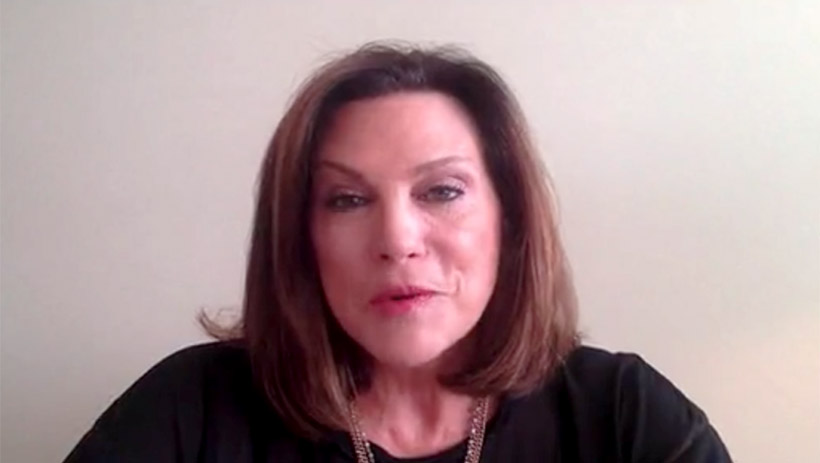Publisher's note: This post appears here courtesy of the Carolina Journal, and written by Lindsay Marchello.
Lynn Minges, president and CEO of the N.C. Restaurant and Lodging Association, speaks at the John Locke Foundation's Shaftesbury Society March 30, 2020. | Photo: Facebook Screenshot
Gary Salamido, president of the
NC Chamber, is the lone business representative on Gov. Roy Cooper's COVID-19 task force.
The lack of private-sector representation is a problem, says
Jon Sanders, director of regulatory studies at the John Locke Foundation.
Cooper created the task force Feb. 11 to prepare for an outbreak of COVID-19. Dr. Elizabeth Cuervo Tilson, N.C. state health director, and Mike Sprayberry, director of state Emergency Management, co-chair the group.
The sizable task force is largely made up of people representing public health, medicine, education, law enforcement, emergency management, and the state.
With the exception of Salamido, the task force lacks an economic or entrepreneurial perspective.
"The task force needs to hear from people who understand that government policies have trade-offs, and extreme government policies like complete shutdowns have very extreme costs: people's livelihoods, people's businesses, and even people's lives," Sanders said.
North Carolina restaurants and hotels would appreciate representation, said Lynn Minges, president and CEO of the N.C. Restaurant and Lodgings Association.
"The hospitality industry has been hit extremely hard," Minges said.
"We are eager to be a part of discussions about the devastation COVID-19 is having on our businesses and on re-opening business in a COVID-19 'new normal' era."
The task force should hear from medical experts, economists, and business leaders, said Michael Walden, William Neal Reynolds distinguished professor and extension economist at N.C. State University.
The task force didn't approach Walden for his input, but he said he would be willing to help public decisionmakers.
The state is listening to the business sector and its growing concerns about the shutdown, Cooper said in a news conference April 17.
"We have had many industry leaders on the phone giving us their thoughts about opening the economy," Cooper said.
The
N.C. Retail Merchants Association organized phone calls, in which restaurant and bar owners shared their experiences and talked about conditions for reopening, Cooper said.
The governor said he held a conference call with the
N.C. Federation of Independent Businesses, which represents hundreds of small businesses across the state.
"So many small businesses that are hanging on by a thread - many that have been here a long time - they have been giving us their input, not only about the kinds of ways North Carolina can ease into opening back up, but also about what they are dealing with in trying to recover funding from the SBA under the paycheck protection act," Cooper said.
More money is needed to help small businesses, Cooper said.
The state will keep talking with businesses and business associations so state officials can get input on reopening the economy, Cooper said.
"We do want to open up North Carolina," he said.
"We want to open it up in the right way with input from businesses [on] how they can protect their employees and customers, and how they can get people back to work."
More than 670,000 unemployment claims were filed between March 15 and April 19. Of those, 579,726 were related to COVID-19.
Pressure to reopen the economy is growing. A grassroots group,
ReopenNC, has garnered more than 60,000 members. The group organized a protest April 14 in front of the Legislative Building. Another protest happened April 21, and included N.C. Sens. Vickie Sawyer, R-Iredell, Carl Ford, R-Rowan, and U.S. Rep. Dan Bishop, R-9th District.
It's imperative North Carolina gets people back to work, Sanders said.
"The longer these blanket restrictions last, or the tighter the governor makes them, the worse it will be for small businesses and the people they employ - or used to," Sanders said.
Restrictions should target virus hot spots, quarantining sick and vulnerable people, Sanders says. Social distancing and an emphasis on good hygiene should continue.
"The governor and his administration must be completely open and transparent in their decision-making, and why," Sanders said.
"They haven't been, and they've given everyone the indication they're making us try to hit a moving target."

